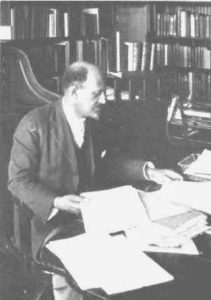I find myself struggling to come up with something to say for S-USIH this weekend. That is for a variety of reasons. First, the events of the last few days weigh heavily on my mind. I fear, however, allowing the current presidency to take up all the intellectual energy of humanities scholars. Much has been written about the rise of Donald Trump, and much more waits to be done after careful research on his campaign and presidency. Simply put, I have nothing new to add to what has been said.
Instead, I do want to bring attention to some fascinating reads in intellectual history that I came across this week. They include questions about historical narrative, famous figures from the past, and how we can continue to conceptualize the arc(s) of American history. Here is a short list—and please, add more in the comments section.
Over at The Junto Blog, Jonathan Wilson raises some important points about how historians are trained to write history as a story. Being in the middle of dissertation writing myself—along with being the holder of a Creative Writing BA—I often think about how we, as historians, write and tell stories to our readers. When I teach, I often try to start off with an anecdotal story to bring alive the kind of history I am teaching my students on that day. I need to do this more in my writing, and Wilson’s post has me thinking harder about how I combine the best writing practices of both creative writing and history. Plus, Wilson’s piece starts off by talking about history and Isaac Asimov’s Foundation series, so it is worth a read for that alone.
Next, a couple of posts from the Black Perspectives blog, maintained by the African American Intellectual History Society, offers some history of the Black radical tradition.
Ibram X. Kendi’s post on the 1967 Martin Luther King, Jr. brings to mind not just King’s public turn towards the left in the late 1960s but his ongoing battle to change public discourse towards a more just, and moral, language. Also, Garrett Felber’s post on Grace Lee and James Boggs is a reminder of how important this couple was in the intellectual development of the American left during the twentieth century. All three of these intellectuals spoke to problems in American society that are still with us today.
Speaking of Ibram X. Kendi, his essay for the New York Times is essential reading if you want to get a grasp on Donald Trump and modern American politics. Here, he expands from his award-winning book Stamped from the Beginning (which you’ll read more about at our blog quite soon) ideas on how racism evolves over time to include President Barack Obama’s own narratives of American history. Frankly, I cannot do the piece justice—I hope you’re able to read it and ruminate on its nuanced outlook on American history.
Finally, I wish to end today’s post on a hopeful note. American politics—and by extension, American thought—seems to be a dark place these days. I have played this song before for students in American history survey courses, using it to communicate how complicated ideas of citizenship have always been in American history. Listen to “Ballad for Americans,” performed by Paul Robeson, during a difficult era in American and world history, and dare to imagine a different world.


2 Thoughts on this Post
S-USIH Comment Policy
We ask that those who participate in the discussions generated in the Comments section do so with the same decorum as they would in any other academic setting or context. Since the USIH bloggers write under our real names, we would prefer that our commenters also identify themselves by their real name. As our primary goal is to stimulate and engage in fruitful and productive discussion, ad hominem attacks (personal or professional), unnecessary insults, and/or mean-spiritedness have no place in the USIH Blog’s Comments section. Therefore, we reserve the right to remove any comments that contain any of the above and/or are not intended to further the discussion of the topic of the post. We welcome suggestions for corrections to any of our posts. As the official blog of the Society of US Intellectual History, we hope to foster a diverse community of scholars and readers who engage with one another in discussions of US intellectual history, broadly understood.
Robert, thanks for sharing these readings (plus Robeson, nice pick), I especially look forward to reading Kendi’s NYT essay when I get a chance, I somehow did not catch it this weekend. His book looks like a definite must read!
¡Saludos de solidaridad!
It is definitely a book worth reading!